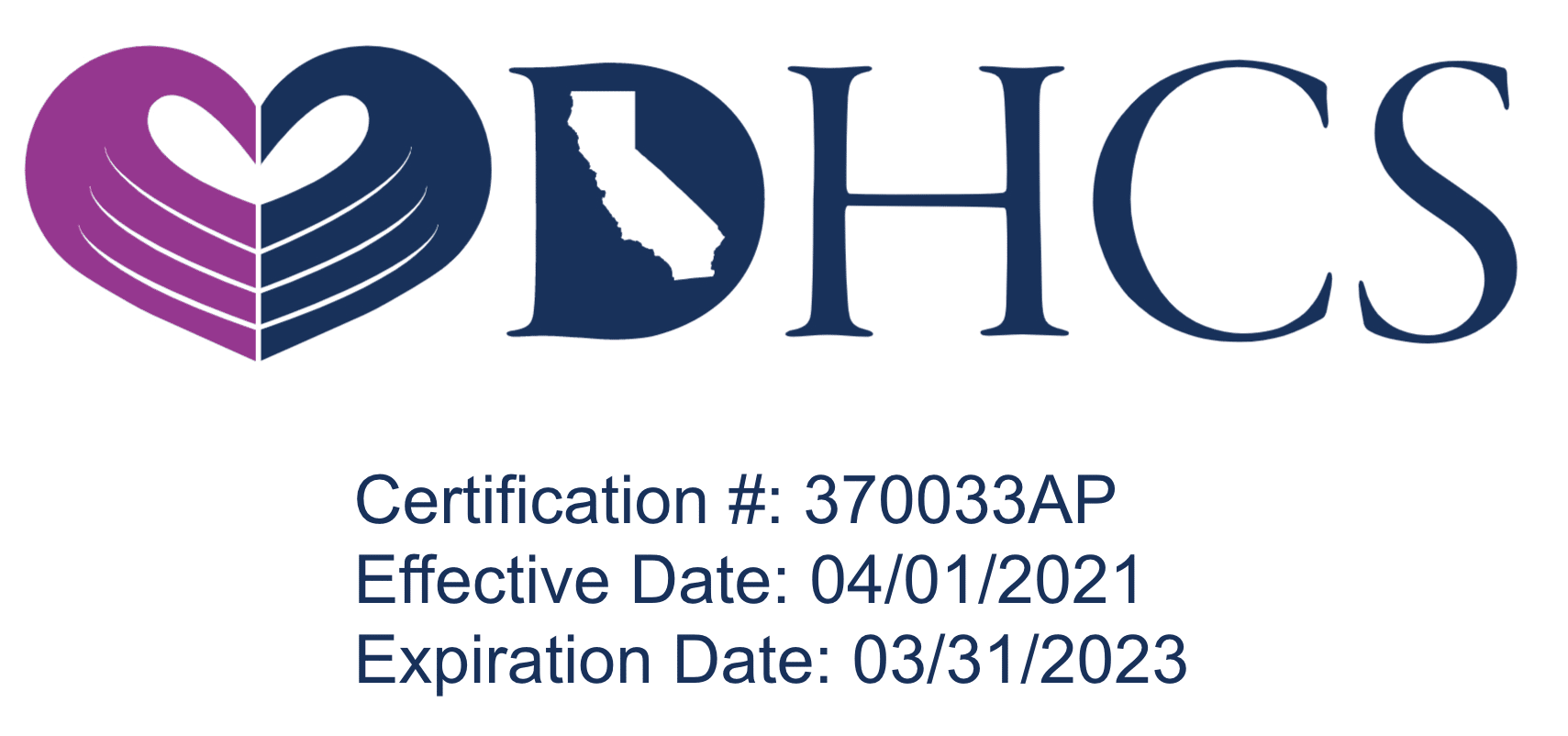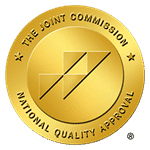Cocaine Detox
San Diego Addiction Treatment Center
Call Now
Our Detox Facility Offers Private Rooms
Cocaine Detox in San Diego
Cocaine is a powerful stimulant known for its intense, euphoric effects, but it also carries a high potential for addiction. As a result, millions of individuals struggle with dependence on this drug, leading to serious health risks and challenges in quitting. In the United States alone, nearly 5 million adults reported using cocaine in 2021, highlighting the widespread nature of this issue.
The journey to overcoming cocaine addiction often begins with withdrawal and detoxification, two critical stages that can be both physically and mentally demanding. Withdrawal symptoms can vary widely, from fatigue and increased appetite to severe depression and suicidal thoughts. Understanding what to expect during detox and how to navigate these symptoms is crucial for those seeking recovery.
At Healthy Life Recovery in San Diego, we understand the difficulties of cocaine withdrawal and offer comprehensive, medically supervised detox programs designed to help you or your loved one safely navigate this challenging process. With professional support, detox can be the first step toward reclaiming your health and starting a path to long-term recovery.
Symptoms of Cocaine Withdrawal
When a person who has developed a dependence on cocaine attempts to quit, their body and mind undergo a challenging process known as withdrawal. The symptoms experienced during this phase can be both physically and mentally taxing, often varying in intensity based on the duration and severity of cocaine use.
Physical Symptoms
Cocaine withdrawal triggers several physical symptoms as the body adjusts to the absence of the drug. Common physical symptoms include:
Fatigue: Many individuals feel extreme tiredness as their body copes with the lack of stimulation that cocaine previously provided.
Increased Appetite: As the appetite-suppressing effects of cocaine wear off, individuals may experience a significant increase in hunger.
Slowed Movements: A noticeable decrease in physical movement and a general sense of sluggishness are common during withdrawal.
Muscle Aches and Pains: Physical discomfort, including muscle aches and pains, can occur as the body detoxifies.
Formication: Some individuals may experience a sensation of skin crawling or itching, known as formication, which can be particularly distressing.
Psychological Symptoms
The psychological impact of cocaine withdrawal can be profound, with symptoms often presenting more severely than the physical effects. These include:
Intense Cravings: One of the most challenging aspects of withdrawal is the powerful craving for cocaine, which can drive individuals to relapse if not properly managed.
Agitation and Irritability: A sense of restlessness, irritability, and agitation is common as the brain struggles to rebalance its chemical levels.
Anxiety: Withdrawal often triggers heightened levels of anxiety, sometimes leading to panic attacks or chronic nervousness.
Depression: As the brain’s dopamine levels drop, individuals may experience deep feelings of depression, often accompanied by a lack of pleasure in activities that were once enjoyable.
Suicidal Thoughts: In severe cases, the combination of depression and anxiety can lead to suicidal ideation, making professional support crucial.
Severe Symptoms
For some, the psychological symptoms of cocaine withdrawal can escalate to life-threatening levels. The risk of self-harm or suicide increases significantly during this period, particularly if the individual is also experiencing severe depression or anxiety. Medical supervision is strongly recommended for those going through cocaine detox to ensure safety and provide immediate intervention if necessary.
Cocaine withdrawal is not just a physical challenge but a mental and emotional battle as well. The combination of physical discomfort, intense cravings, and severe mood disturbances makes this phase incredibly difficult to navigate alone. Understanding these symptoms is the first step in preparing for a successful detox, and seeking professional help can make all the difference in overcoming this challenging period.
Cocaine Withdrawal Timeline
Cocaine withdrawal doesn’t follow a one-size-fits-all timeline. The duration and intensity of withdrawal symptoms can vary widely depending on factors such as the length and severity of cocaine use, the individual’s overall health, and whether they’ve attempted to quit before. However, the process of withdrawal generally follows a predictable pattern, which can be broken down into three main phases: the crash, the craving phase, and protracted withdrawal.
1. The Crash (Within a Few Hours to a Few Days)
The initial phase of cocaine withdrawal, often referred to as the “crash,” begins just hours after the last dose. During this period, individuals may experience an intense drop in energy levels, leading to:
- Severe Fatigue: The body, once fueled by the stimulant effects of cocaine, suddenly feels drained of energy.
- Depression: As the euphoria from cocaine fades, it’s common to experience a deep sense of sadness or hopelessness.
- Increased Sleep: Many individuals find themselves sleeping excessively as their body tries to recover.
- Intense Cravings: Despite feeling physically and emotionally drained, the desire to use cocaine again can be overwhelming.
- Irritability and Anxiety: The crash phase can also bring about feelings of restlessness and nervousness as the brain adjusts to the lack of cocaine.
2. The Craving Phase (1 to 10 Weeks)
After the initial crash, the withdrawal process enters a phase dominated by strong cravings for cocaine. This phase can last from a few days to several weeks and is marked by:
- Persistent Cravings: The urge to use cocaine remains strong, often triggered by environmental cues or emotional stress.
- Mood Swings: Individuals may experience fluctuating moods, ranging from irritability to periods of intense depression.
- Anxiety and Agitation: Heightened levels of anxiety and restlessness are common, making it difficult to relax or focus on daily activities.
- Difficulty Concentrating: Cognitive functions such as attention and memory may be impaired, leading to challenges in work or personal life.
- Lethargy: Despite the absence of the drug, feelings of exhaustion and low energy can persist, making it difficult to stay active and engaged.
3. Protracted Withdrawal (Weeks to Months)
For some individuals, withdrawal symptoms don’t fully subside after the initial few weeks. Instead, they may enter a phase known as protracted or long-term withdrawal, which can last for several months or longer. During this time:
- Lingering Cravings: While less intense than in the earlier phases, cravings for cocaine can continue to surface, especially during stressful situations.
- Chronic Fatigue: Some individuals may struggle with ongoing tiredness, even after weeks of abstinence.
- Depression and Anxiety: These symptoms can persist, requiring ongoing management through therapy or medication.
- Sleep Disturbances: Problems with sleep, including insomnia or vivid dreams, may continue to affect the individual’s quality of life.
- Emotional Instability: Mood swings, including irritability and sadness, may still occur, though typically less frequently than during the earlier phases.
The timeline for cocaine withdrawal is influenced by various factors, including the duration and intensity of use, the method of consumption (e.g., snorting, smoking, or injecting), and individual differences in metabolism. Acute withdrawal symptoms typically resolve within 1 to 2 weeks, but some individuals may experience protracted symptoms that last much longer.
Given the variability in withdrawal experiences, it’s crucial to approach detox with flexibility and patience. Professional support can be invaluable during this time, providing the medical and psychological care needed to manage symptoms and reduce the risk of relapse.
The Importance of Professional Support
Navigating cocaine withdrawal is a challenging process that can be physically, mentally, and emotionally taxing. While some individuals may consider managing withdrawal on their own, the risks involved often make this approach dangerous and less effective. Professional support during detox is crucial for several reasons, offering a safer, more comfortable, and more successful path to recovery.
Medical Supervision
Cocaine withdrawal can cause severe physical and psychological symptoms, some of which can escalate to life-threatening levels. Medical supervision in a detox program ensures that these symptoms are closely monitored and managed. Healthcare professionals can provide:
Safety Monitoring: Continuous observation helps to identify and address any complications, such as severe depression or suicidal thoughts, before they become critical.
Medication Management: Although there are no FDA-approved medications specifically for cocaine withdrawal, doctors can prescribe medications to alleviate symptoms like anxiety, insomnia, or depression, making the detox process more bearable.
Emergency Care: In the event of a medical crisis, such as a heart complication or severe mental health episode, immediate intervention is available, reducing the risk of serious harm.


Psychological Support
The psychological aspects of cocaine withdrawal are often more difficult to manage than the physical symptoms. Professional detox programs provide essential mental health support through:
Therapeutic Interventions: Cognitive Behavioral Therapy (CBT) and other evidence-based therapies are used to help individuals cope with cravings, anxiety, and depression. These therapies also equip patients with tools to manage stress and avoid relapse.
Emotional Support: Withdrawal can be an emotionally draining experience, filled with mood swings, irritability, and despair. Having access to counselors and therapists during this time provides much-needed emotional support, helping individuals navigate their feelings and stay committed to recovery.
Peer Support: Many detox programs incorporate group therapy sessions where individuals can connect with others going through similar experiences. This peer support can be incredibly motivating and reassuring, reducing feelings of isolation and hopelessness.
Customized Care Plans
Each person’s experience with cocaine withdrawal is unique, and what works for one individual may not be effective for another. Professional support ensures that:
Individualized Treatment: Healthcare providers can tailor detox plans to the specific needs of each patient, considering factors like the severity of addiction, co-occurring mental health conditions, and personal preferences.
Continuous Assessment: Throughout the detox process, healthcare professionals continually assess the individual’s progress and adjust the treatment plan as needed, ensuring that care remains effective and responsive.


Long-Term Recovery Planning
Detox is just the first step in overcoming cocaine addiction. Professional support during detox also includes planning for long-term recovery, which might involve:
Transition to Rehabilitation: After detox, many individuals benefit from transitioning to an inpatient or outpatient rehabilitation program, where they can continue their recovery journey in a supportive environment.
Relapse Prevention: Professional support includes developing a relapse prevention plan, which may involve ongoing therapy, support groups, and other resources to help maintain sobriety.
Aftercare Services: Many detox programs offer or connect patients with aftercare services, such as sober living homes or outpatient counseling, to provide continued support as they reintegrate into everyday life.
While the idea of overcoming cocaine withdrawal alone may seem appealing to some, the reality is that professional support significantly increases the chances of a successful and lasting recovery. By providing medical supervision, psychological care, a structured environment, and a personalized approach to treatment, professional detox programs help individuals navigate the challenges of withdrawal safely and effectively. If you or a loved one is considering detoxing from cocaine, reaching out to a professional detox center is a critical step toward reclaiming your health and starting a new chapter in life.
Treatment Options for Cocaine Addiction
Detoxing from cocaine is a crucial first step toward recovery, but it’s a process that should never be undertaken alone. The withdrawal symptoms associated with cocaine can be intense and challenging, making professional treatment essential for a safe and effective detox. At Healthy Life Recovery in San Diego, California, we offer comprehensive treatment options designed to support individuals through every stage of detox and beyond, ensuring the best possible outcomes for long-term recovery.
Medically Supervised Detox
One of the most effective ways to manage cocaine withdrawal is through a medically supervised detox program. This approach provides round-the-clock care and monitoring, helping to mitigate the physical and psychological symptoms of withdrawal in a safe and controlled environment.
24/7 Medical Care: At Healthy Life Recovery, our medically supervised detox program ensures that you receive continuous medical attention. This means that any complications or severe symptoms that arise during withdrawal can be promptly addressed, reducing the risk of health emergencies.
Symptom Management: While there are no FDA-approved medications specifically for cocaine withdrawal, our medical team can prescribe treatments to alleviate specific symptoms, such as anxiety, depression, and insomnia. This helps to make the detox process more comfortable and manageable.
Personalized Care Plans: Every individual’s experience with cocaine withdrawal is unique, which is why we tailor our detox programs to meet your specific needs. Our medical professionals work closely with you to create a customized detox plan that addresses your symptoms and supports your overall well-being.


Outpatient Rehabilitation
Following the detox phase, continuing care is essential to maintain sobriety and build a strong foundation for recovery. Healthy Life Recovery offers outpatient rehabilitation programs that allow you to receive ongoing treatment while maintaining your daily responsibilities.
Flexible Treatment Schedules: Our outpatient rehab programs are designed to fit into your life, offering flexible scheduling options that allow you to continue working, attending school, or taking care of family responsibilities. This flexibility is key to maintaining progress in recovery while balancing other aspects of life.
Therapeutic Support: Outpatient rehab at Healthy Life Recovery includes individual therapy, group therapy, and family counseling. These sessions are crucial for addressing the underlying causes of addiction, developing coping strategies, and building a strong support network.
Behavioral Therapies: We employ evidence-based therapies, such as Cognitive Behavioral Therapy (CBT) and Relapse Prevention Therapy, to help you understand and change the thought patterns and behaviors that contribute to addiction. These therapies are integral to learning how to manage cravings and avoid relapse.
Relapse Prevention Strategies
Preventing relapse is a critical component of long-term recovery, and our programs are designed to equip you with the skills and strategies needed to maintain sobriety after detox.
Life Skills Training: Recovery isn’t just about abstaining from drugs; it’s about building a fulfilling, drug-free life. Our life skills training sessions teach you practical skills for managing stress, setting goals, and maintaining a healthy lifestyle.
Support Networks: Building a strong support system is vital for preventing relapse. We connect you with peer support groups, such as SMART Recovery and LifeRing, where you can share experiences, gain encouragement, and stay motivated in your recovery journey.
Ongoing Counseling: Relapse prevention counseling is available as part of our outpatient program, providing continuous support and guidance as you navigate the challenges of maintaining sobriety in everyday life.

Healthy Life Recovery Can Help
Cocaine detox is a challenging but essential step in the recovery process, and at Healthy Life Recovery, we are committed to providing the highest level of care to help you navigate this journey.
Our medically supervised detox, comprehensive outpatient rehab, and holistic wellness services are all designed to support you through withdrawal and build a solid foundation for a drug-free future. If you or a loved one is struggling with cocaine addiction, contact Healthy Life Recovery today to learn how we can help you start your journey to recovery.

Medically Reviewed By:
Dr. Sanjai Thankachen
Dr. Sanjai Thankachen graduated from Adichunchanagiri Institute of Medicine in 2000. He completed his residency in psychiatry in 2008 at Creedmoor Psychiatric Center in New York. Dr. Thankachen is currently working with Pacific Neuropsychiatric Specialists in an outpatient practice, as well as working at multiple in-patient psychiatric and medical units bringing his patients the most advanced healthcare treatment in psychiatry. Dr. Thankachen sees patients with an array of disorders, including depression, bipolar illness, schizophrenia, anxiety, and dementia-related problems.

Edited for Clinical Accuracy By:
Sean Leonard, Psychiatric Nurse Practitioner
Sean Leonard is a board-certified psychiatric nurse practitioner. He received his master’s degree in adult geriatric primary care nurse practitioner from Walden University and a second postmaster specialty in psychiatry mental health nurse practitioner from Rocky Mountain University. Sean has experience working in various diverse settings, including an outpatient clinic, inpatient detox and rehab, psychiatric emergency, and dual diagnosis programs. His specialty areas include substance abuse, depression, anxiety, mood disorders, PTSD, ADHD, and OCD.


